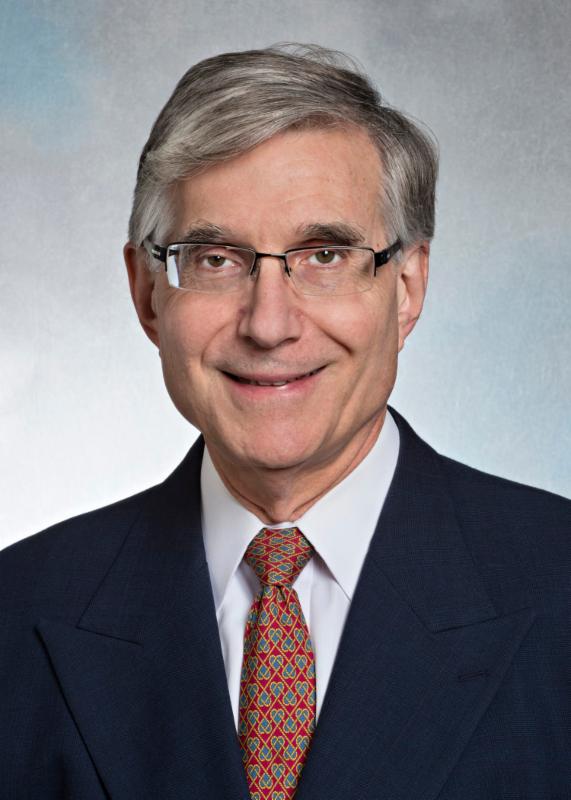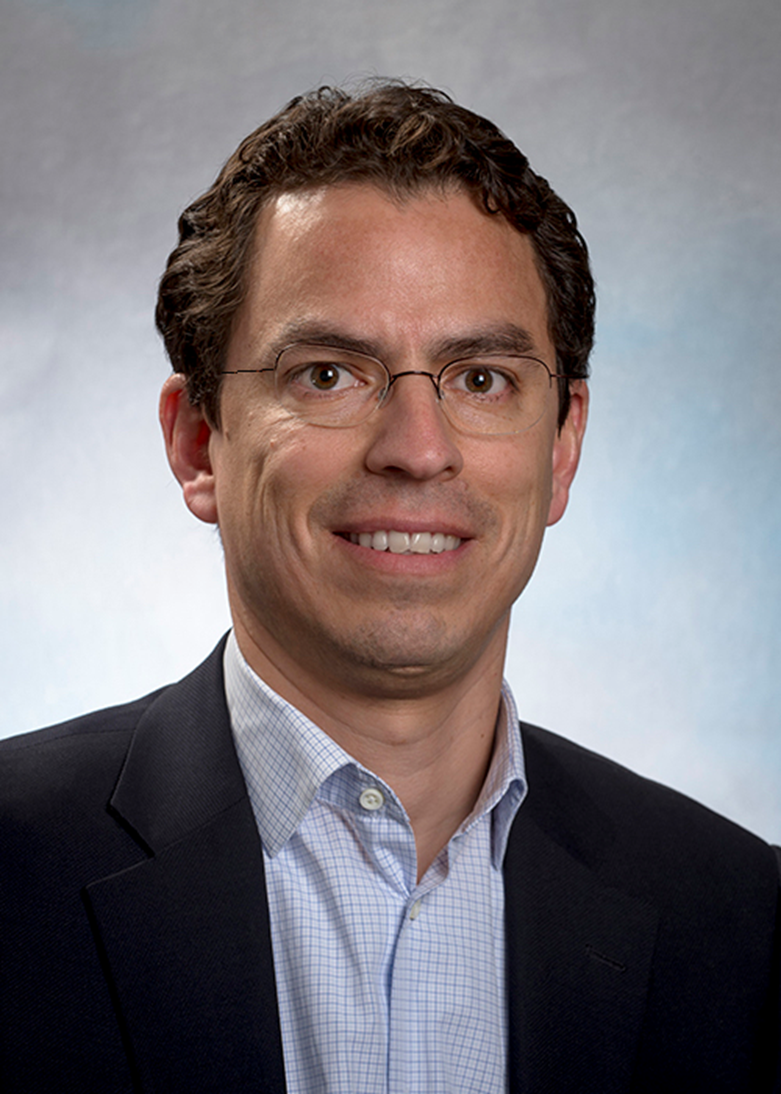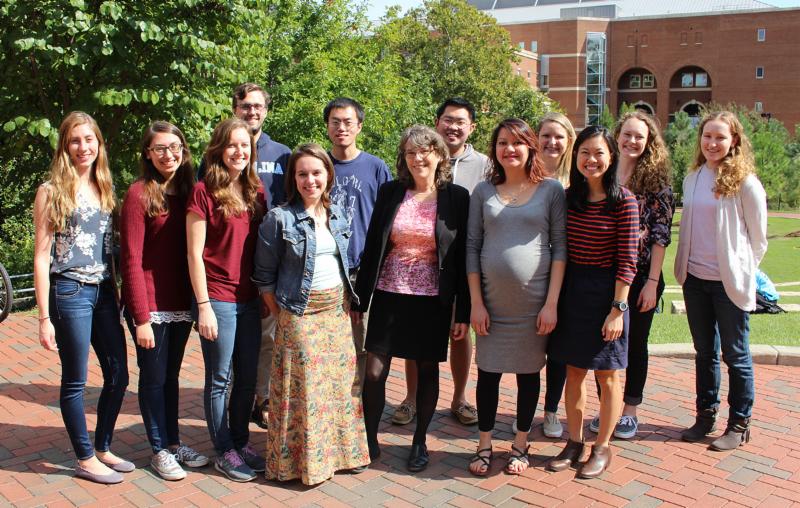Lymphatic Forum
in Chicago, IL
June 8-10, 20
17

Vasculata 2017
Chicago, IL
July 24-27, 2017
(new dates!)
October 15-19, 2017
 20th IVBM
Helsinki, Finland
June 3-7, 2018
20th IVBM
Helsinki, Finland
June 3-7, 2018
|
|
Today Only - Help Support NAVBO
|
 Amazon is celebrating its #1 ranking in customer satisfaction by the ACSI! Today, March 16, Amazon will donate 5% (10 times the usual donation rate) of the price of your eligible AmazonSmile purchases to NAVBO. Get started at
smile.amazon.com/ch/52-1917956.
|
Diamond Level
Welcome Reception Host
|
|
|
|
2017 Earl P. Benditt Award Recipient
|

Peter Libby, M.D.
Brigham and Women's Hospital
Mallinckrodt Professor of Medicine
Harvard Medical School
The Earl P. Benditt Award acknowledges Dr. Libby's numerous contributions to vascular biology, in particular further defining the pathogenesis of atherosclerosis using both mouse models and analysis of human tissue. He is also a consummate translational physician scientist who has applied his scientific expertise and clinical perspectives as Chief of Cardiovascular Medicine at Brigham and Women's Hospital (1998-2014) to propel clinical trials with scientific orientation. He continues to be an exemplary citizen of the vascular community at multiple levels, including leadership roles and training the next generation of scientists.
Read More
|
|
2017 Judah Folkman Award in Vascular Biology Recipient
|

Guillermo García-Cardeña, Ph.D.
Brigham and Women's Hospital,
Center for Excellence in Vascular Biology
Associate Professor,
Harvard Medical School
The Judah Folkman Award recognizes Dr. García-Cardeña's contributions to our understanding of the mechanobiology of vascular endothelium. His approach has been richly multidisciplinary, ranging from computational genomics to the design of novel in vitro fluid mechanical devices. Dr. García-Cardeña has become recognized as a passionate and gifted teacher, a collegial and interactive collaborator, and a vibrant role model for young investigators-in-training. Dr. García-Cardeña also personally benefited from Dr. Judah Folkman's mentorship early in his career.
Read More.
|
|
Travel Awards to the GRC on Angiogenesis
|
NAVBO Continues to Support Travel Awards to the GRC
This year NAVBO will support two travel awards, $500US each, to the Angiogenesis Gordon Research Conference organized by NAVBO members
Drs. Shahin Rafii and
Hellmut Augustin. You and your PI must be NAVBO members in order to be eligible for the award.
Click here for details.
Applications must be submitted by June 1.
|
|
Lymphatic Forum - April 3 Abstract Deadline
|
|
The growth in lymphatic research is due in part to the identification of critical regulators of lymphatic growth and the availability of valuable animal models and more importantly, to a better understanding of the functional roles of the lymphatic vasculature in health and disease.
Recent work has identified novel functional roles of the
lymphatic vasculature in fat metabolism, obesity, inflammation,
the regulation of salt storage in hypertension, heart disease, glaucoma and maybe even in some neurological disorders.
Therefore, the need for researchers working in a broad spectrum of normal and pathological lymphatic biology is dramatically increasing. This forum will bring together developmental biologists, cancer researchers, physiologists, biomedical engineers, cardiologists, neuroscientists and physicians to promote the exchange of scientific progress and ideas in related topics. Join us in Chicago, June 8-10 for the Lymphatic Forum.
|
The Lab of Dr. Victoria Bautch
 This month we are highlighting the lab of Dr. Victoria Bautch, who is Professor and Chair of the
Biology Department at the University of North Carolina at Chapel Hill. Find out more about Dr. Bautch's lab at
http://www.navbo.org/membership/members-labs/584-lab032017.
|
|
Spotlight on Trainees
(from the March 2 issue)
|
The disciplinary distribution of postdoctoral researchers in American universities is shifting, as reported in an Inside Higher Education article, leading to a decline in the number of postdoctoral researchers in the biomedical fields and an increase in fields such as neuroscience, engineering, and other social sciences. The number of postdocs working at U.S. universities was 63,861 in 2015, up 0.4% from 2014. Roughly 55% of the 2015 postdocs were in the biological sciences (30.2 percent) and clinical medicine (24.8 percent), down from more than 60 percent in 2010. These shifts may reflect trainees' awareness of market factors: In the 1970s, a majority of PhD graduates in biological sciences were able to secure a tenure-track position within six years. Forty years further on, that fraction has fallen below 20%. Trainees, their mentors and home institutions, and the entities that fund and formulate biomedical workforce policy together share responsibility for bridging "...the gap between emerging life science professionals and available positions."
|
Welcome to our New Members:
Yixin Wang, Karolinska Institutet
Wenjing Xu, UNC-Chapel Hill
|
|
Recent Publications by NAVBO Members
|
| Mapping cell type-specific transcriptional enhancers using high affinity, lineage-specific Ep300 bioChIP-seq
ELife
Understanding the mechanisms that regulate cell type-specific transcriptional programs requires developing a lexicon of their genomic regulatory elements. The authors developed a lineage-selective method to map transcriptional enhancers, regulatory genomic regions that activate transcription, in mice. Read more Fluid shear stress induces upregulation of COX-2 and PGI2 release in endothelial cells via a pathway involving PECAM-1 , PI3K , FAK, and p38
American Journal of Physiology Heart and Circulatory Physiology
Vascular endothelial cells play an important role in the regulation of vascular function in response to mechanical stimuli in both healthy and diseased states. Prostaglandin I2 (PGI2) is an important anti-atherogenic prostanoid and vasodilator produced in endothelial cells through the action of cyclooxygenase isoenzymes COX-1 and COX-2. Read more Identification and Profiling of Specialized Pro-Resolving Mediators in Human Tears by Lipid Mediator Metabolomics
Prostaglandins Leukotrienes and Essential Fatty Acids
Specialized pro-resolving mediators (SPM), e.g. Resolvin D1, Protectin D1, Lipoxin A4, and Resolvin E1 have each shown to be active in ocular models reducing inflammation. In general, SPMs have specific agonist functions that stimulate resolution of infection and inflammation in animal disease models. Read more Vagal regulation of Group-3 innate lymphoid cells and the immunoresolvent PCTR1 controls infection resolution
Immunity
Uncovering mechanisms that control immune responses in the resolution of bacterial infections is critical for the development of new therapeutic strategies that resolve infectious inflammation without unwanted side effects. The authors found that disruption of the vagal system in mice delayed resolution of Escherichia coli infection. Read more Hypoxia induces heart regeneration in adult mice
Nature
The adult mammalian heart is incapable of regeneration following cardiomyocyte loss, which underpins the lasting and severe effects of cardiomyopathy. Recently, it has become clear that the mammalian heart is not a post-mitotic organ. For example, the neonatal heart is capable of regenerating lost myocardium, and the adult heart is capable of modest self-renewal. Read more Role of Genetic Variation in Collateral Circulation in the Evolution of Acute Stroke: A Multimodal Magnetic Resonance Imaging Study
Stroke
BACKGROUND AND PURPOSE: No studies have determined the effect of differences in pial collateral extent (number and diameter), independent of differences in environmental factors and unknown genetic factors, on severity of stroke. The authors examined ischemic tissue evolution during acute stroke, as measured by magnetic resonance imaging and histology, by comparing 2 congenic mouse strains with otherwise identical genetic backgrounds but with different alleles of the Determinant of collateral extent-1 (Dce1) genetic locus. Read more Local Vascular Gene Therapy With Apolipoprotein A-I to Promote Regression of Atherosclerosis
Arteriosclerosis, Thrombosis, and Vascular Biology
OBJECTIVE: Gene therapy, delivered directly to the blood vessel wall, could potentially prevent atherosclerotic lesion growth and promote atherosclerosis regression. Previously, we reported that a helper-dependent adenoviral (HDAd) vector expressing apolipoprotein A-I (apoA-I) in carotid endothelium of fat-fed rabbits reduced early (4 weeks) atherosclerotic lesion growth. Read more Tropoelastin coated PLLA-PLGA scaffolds promote vascular network formation
Biomaterials
The robust repair of large wounds and tissue defects relies on blood flow. This vascularization is the major challenge faced by tissue engineering on the path to forming thick, implantable tissue constructs. Without this vasculature, oxygen and nutrients cannot reach the cells located far from host blood vessels. Read more Deletion of neuropilin 2 enhances detrusor contractility following bladder outlet obstruction
Journal of Clinical Investigation Insight
Chronic urethral obstruction and the ensuing bladder wall remodeling can lead to diminished bladder smooth muscle (BSM) contractility and debilitating lower urinary tract symptoms. No effective pharmacotherapy exists to restore BSM contractile function. Read more |
|
Industry News
(from the March 2 issue)
|
Mini-brains for vascular research
Scientists at Brown University, using 3D cultures of neural cells to model the basic properties of native brain,
report in the Journal of Neuroscience Methods that such "mini-brains" appear to form vascular structures spontaneously. This research, performed in Diane Hoffman-Kim's laboratory, raises hopes that mini-brains can someday reduce reliance on animal models for study of the development of brain vasculature and its repair after ischemic events or stroke.
National Academies issue report on gene editing in humans
The National Academies of Sciences, Engineering, and Medicine
released a report stating that editing the DNA of a human embryo might be allowed under certain circumstances. Announcement of the National Academies' position was headed: "With stringent oversight, heritable germline editing clinical trials could one day be permitted for serious conditions; non-heritable clinical trials should be limited to treating or preventing disease or disability at this time." An
article in Science covering the report noted that a clinical trial using gene editing could be permitted only after further research on risks and benefits and only for compelling reasons.
Best two out of three? Four of seven?
John Ioannidis, MD, DSc, of the Departments of Medicine and Health Research & Policy at the Stanford University School of Medicine, has published a viewpoint in JAMA that addresses the issue of non-reproducibility in basic and preclinical research. He suggests three dimensions as principal contributors to - and as targets for remediation of - non-reproducibility in bench research: a misaligned system of incentives and rewards; poor choice or execution of research methods; and barriers to transparency. He concludes that, "...as the research enterprise gets larger and enters many new areas of investigation, reproducibility assessments may help funders and the scientific community prioritize investments in specific areas."
|
May 8-12, 2017
|
Keystone Symposia Conference - Angiogenesis and Vascular Disease |
May 29 - June 1, 2017
|
ESM/EVBO 2017 Meeting Geneva |
June 8-10, 2017
|
Lymphatic Forum 2017 |
June 8-11, 2017
|
12th HHT International Scientific Conference |
July 8-13, 2017
|
International Society on Thrombosis and Haemostasis 2017 Congress |
July 24-27, 2017
|
Vasculata 2017 |
Aug. 11-14, 2017
|
2017 APS Conference: Cardiovascular Aging, New Frontiers and Old Friends |
Oct. 15-19, 2017
|
Vascular Biology 2017 |
June 4-7, 2018
|
20th International Vascular Biology Meeting |
|
Contacting Your Representatives Can Make a Difference for Science
If you are a U.S. citizen, let your U.S. representatives hear from you and encourage them to be advocating for science. There are many methods by which to reach out - from attending meetings or personal visits to congressional offices, to doing something as simple as writing a postcard. Be sure to reach out to your district and state representatives. Now, in addition to funding the NIH budget and other federal biomedical research budgets, scientists must clearly express how other policies impact scientific collaboration, a key component in the scientific process.
Here are links to organizations that encourage, support and aid science advocates:
Coalition for the Life Sciences
Federation of American Societies for Experimental Biology (FASEB)
Research!America
If you are aware of other groups, please let us know and we will post them in future newsletter issues (send to [email protected]).
|
|
|